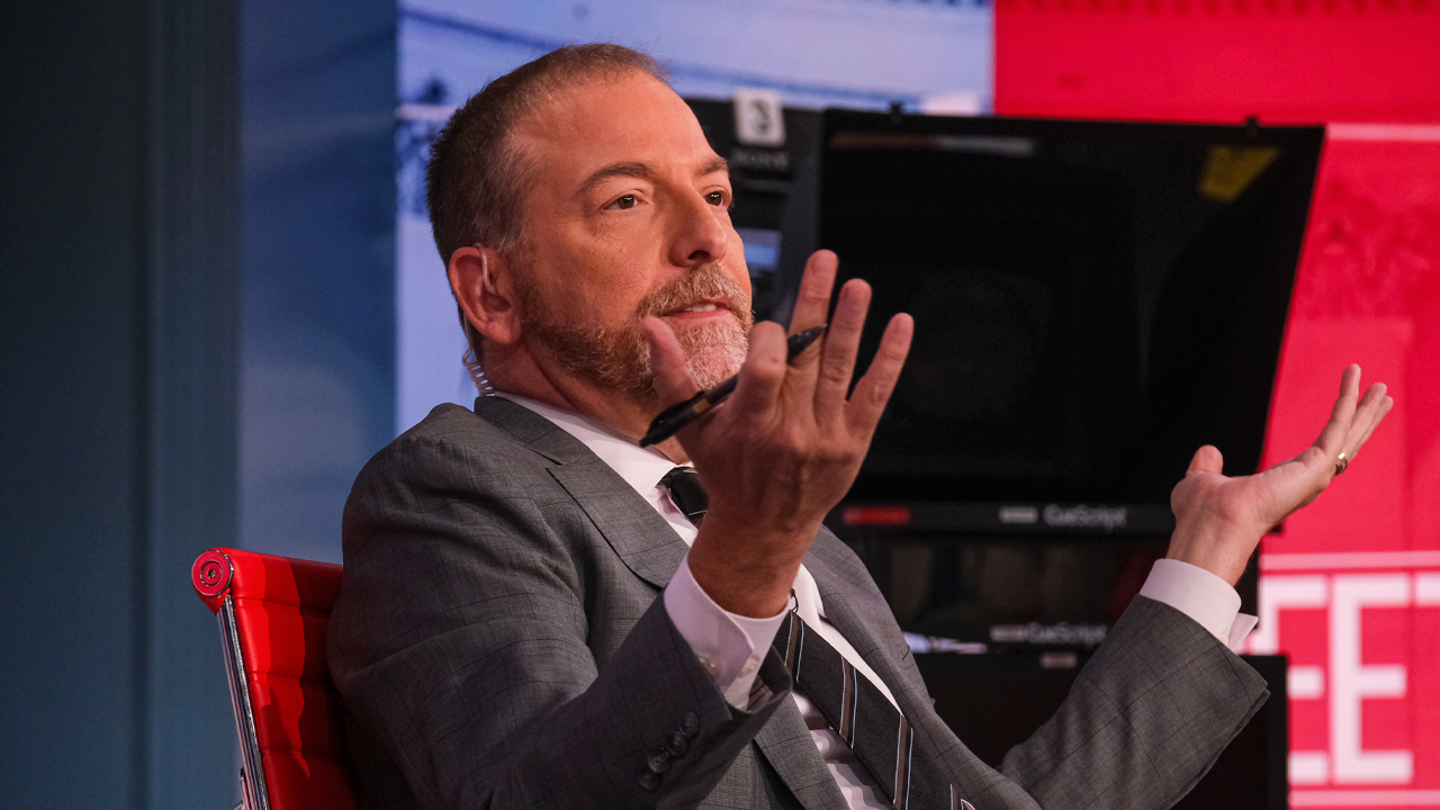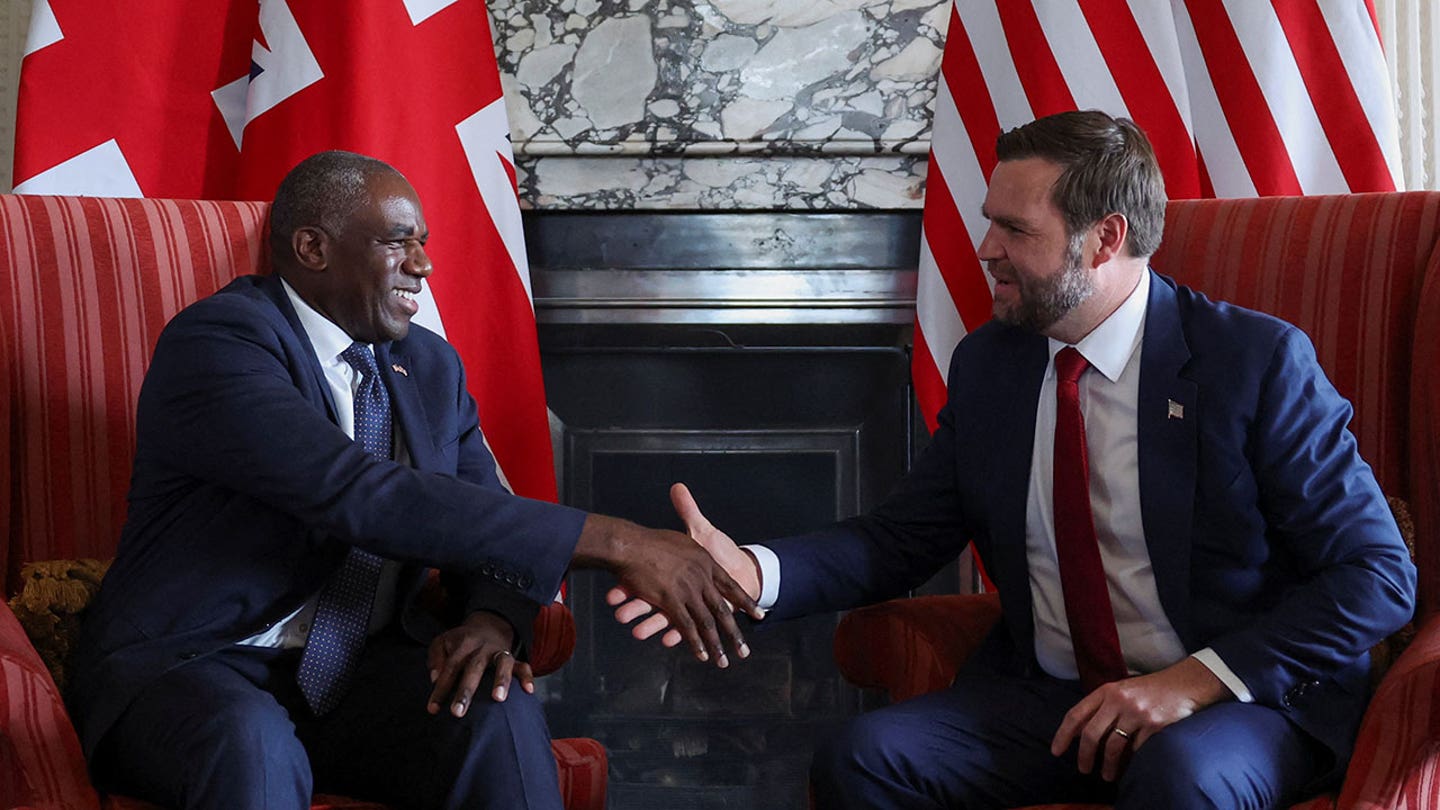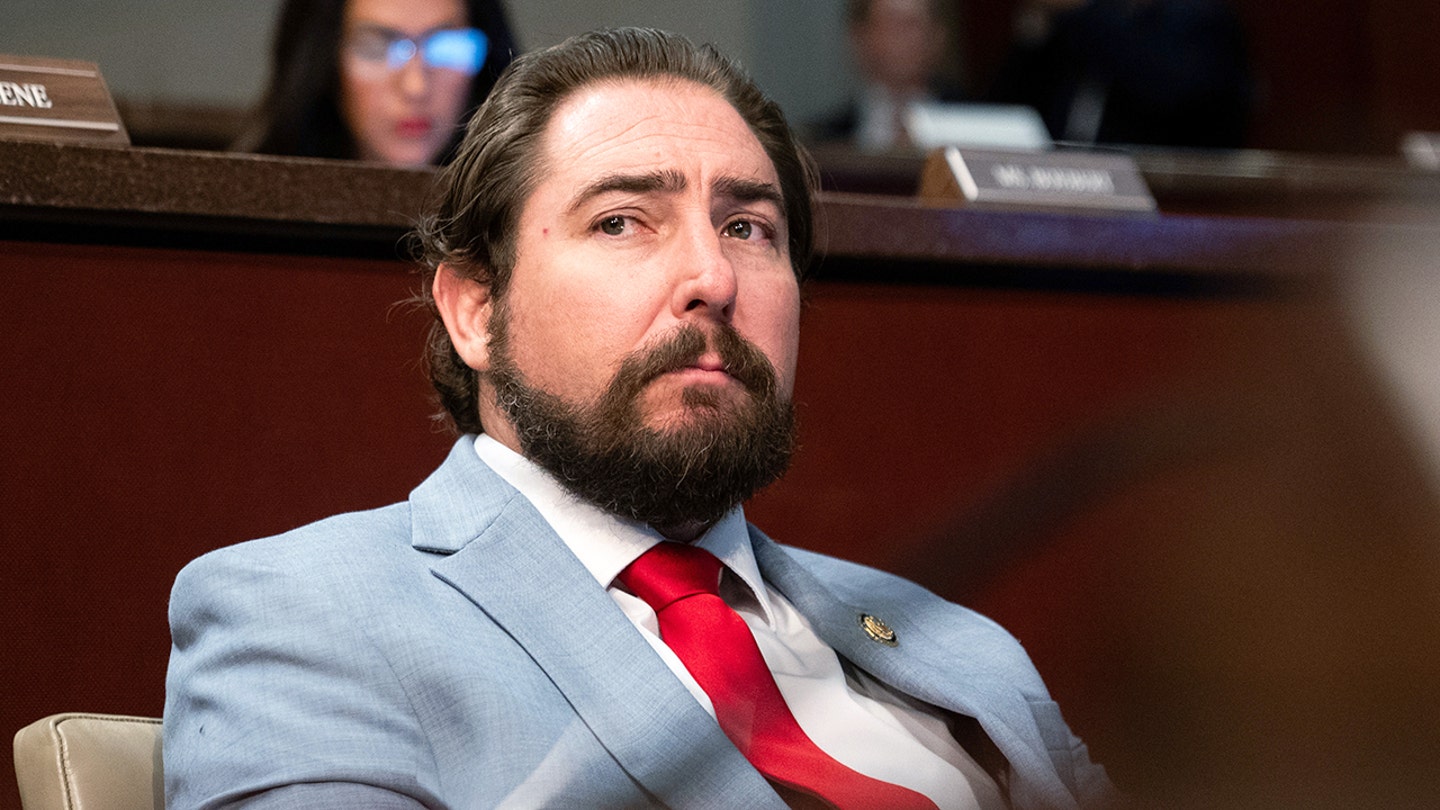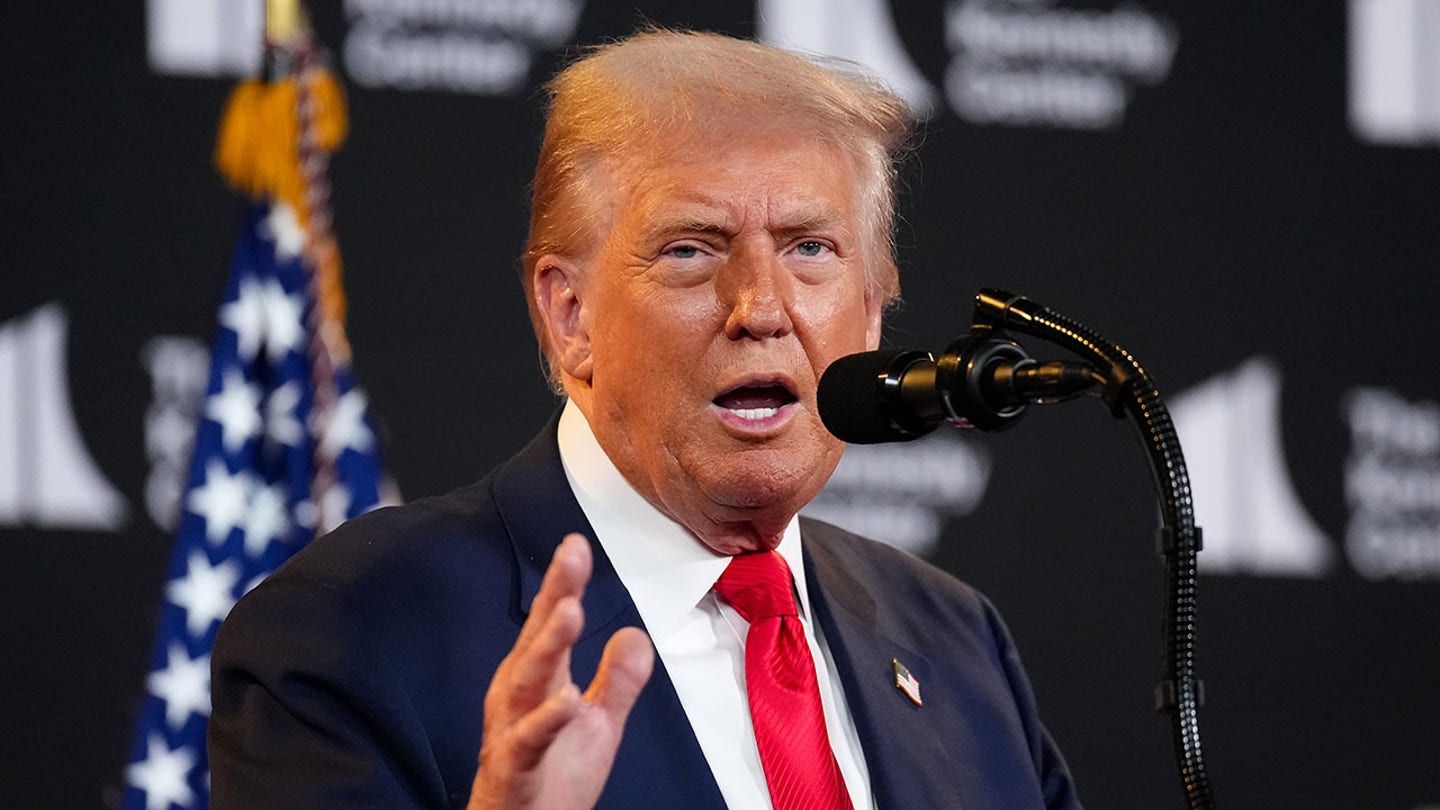
New report accuses bureaucrats of running ‘shadow government’ pushing DEI, gender ideology in red states
Entities mentioned:
- State Leadership Initiative (SLI): Justice, Influence, Control
- National Association of State Treasurers (NAST): Professional pride, Influence, Unity
- National Association of Medicaid Directors (NAMD): Professional pride, Influence, Duty
- National Association of State Boards of Education (NASBE): Influence, Unity, Professional pride
- Noah Wall: Righteousness, Influence, Control
- Republican governors and lawmakers: Control, Power, Righteousness
Article Assessment:
Credibility Score: 55/100
Bias Rating: 75/100 (Lean Right)
Sentiment Score: 30/100
Authoritarianism Risk: 45/100 (Mixed/Neutral)
Bias Analysis:
The article leans right, primarily presenting the conservative viewpoint and critiquing progressive policies. While it includes some opposing perspectives, the framing and source selection heavily favor the conservative argument against 'shadow governance'.
Key metric: Government Effectiveness
As a social scientist, I analyze that this article highlights a significant tension between elected officials and bureaucratic structures in state governance. The report by SLI suggests a disconnect between voter preferences and policy implementation, particularly in conservative states. This alleged 'shadow governance' by national associations potentially undermines democratic processes and the will of the electorate. The impact on government effectiveness is multifaceted: while these associations may enhance policy consistency and professionalism across states, they may also reduce responsiveness to local preferences and electoral mandates. This situation could lead to decreased trust in government institutions and a perception of diminished democratic control. The push for DEI, ESG, and gender policies in traditionally conservative states may lead to policy incongruence and potential backlash. However, the associations' perspective might argue that these policies improve overall governance quality and social equity. The tension between standardization and local autonomy in policymaking is a classic challenge in federalist systems, and this report brings it to the forefront of current political debates.

Vance visits US troops during high-stakes UK trip ahead of Trump's Putin meeting
Entities mentioned:
- JD Vance: Duty, Influence, Loyalty
- Donald Trump: Power, Control, Legacy
- Vladimir Putin: Power, Control, Self-preservation
- David Lammy: Duty, Cooperation, Security
- U.S. Military: Duty, Security, Professional pride
- European allies: Security, Cooperation, Self-preservation
- Ukraine: Self-preservation, Freedom, Justice
Article Assessment:
Credibility Score: 75/100
Bias Rating: 55/100 (Center)
Sentiment Score: 45/100
Authoritarianism Risk: 35/100 (Generally Democratic)
Bias Analysis:
The article presents a relatively balanced view, incorporating multiple perspectives and sources. However, there's a slight lean towards emphasizing the Trump administration's viewpoint, particularly in quoting Trump and Vance directly.
Key metric: International Relations and Diplomacy
As a social scientist, I analyze that this article highlights the complex interplay of international diplomacy, military strategy, and geopolitical tensions surrounding the ongoing Ukraine conflict. Vice President Vance's trip to the UK serves multiple purposes: reinforcing US-UK relations, pressuring European allies to take greater responsibility in the Ukraine conflict, and setting the stage for President Trump's meeting with Putin. The shift in Trump's rhetoric towards Putin suggests a potential recalibration of US-Russia relations. The article also underscores the significant financial commitment the US has made to Ukraine, and the administration's apparent desire to reduce this burden. This diplomatic maneuvering could have far-reaching implications for NATO alliance dynamics, the future of the Ukraine conflict, and the balance of power in Eastern Europe.

House Democrat presses DOJ on Ghislaine Maxwell prison transfer, meeting with top official
Entities mentioned:
- Rep. Jamie Raskin: Justice, Righteousness, Duty
- Ghislaine Maxwell: Self-preservation, Freedom, Control
- Department of Justice: Control, Obligation, Professional pride
- Trump administration: Power, Self-preservation, Control
- Attorney General Pam Bondi: Duty, Professional pride, Loyalty
- Bureau of Prisons Director William K. Marshall III: Duty, Professional pride, Control
- Deputy Attorney General Todd Blanche: Loyalty, Power, Influence
- House Judiciary Committee: Justice, Duty, Oversight
- House Oversight Committee: Justice, Duty, Oversight
Article Assessment:
Credibility Score: 70/100
Bias Rating: 35/100 (Lean Left)
Sentiment Score: 30/100
Authoritarianism Risk: 55/100 (Mixed/Neutral)
Bias Analysis:
The article leans left, focusing on Democratic concerns and potential Trump administration wrongdoing. While it presents factual information, the framing and emphasis on Democratic perspectives suggest a left-leaning bias.
Key metric: Government Accountability and Transparency
As a social scientist, I analyze that this article highlights potential issues in the justice system and government accountability. The unusual transfer of Ghislaine Maxwell to a minimum-security prison and her meeting with a former Trump lawyer raise questions about preferential treatment and possible attempts to influence testimony. This situation could significantly impact public trust in government institutions and the fairness of the justice system. The congressional inquiry led by Rep. Raskin represents an attempt to maintain oversight and transparency, which are crucial for democratic processes. However, the implications of potential interference in legal proceedings and witness treatment could have far-reaching consequences for the integrity of the justice system and the separation of powers.

Chuck Todd warns that Dems are falling into Trump’s trap, 'taking the bait' on redistricting
Entities mentioned:
- Chuck Todd: Professional pride, Duty, Wariness
- Democrats: Power, Justice, Revenge
- Republicans: Power, Control, Self-preservation
- Donald Trump: Power, Control, Influence
- Beto O'Rourke: Ambition, Power, Justice
Article Assessment:
Credibility Score: 70/100
Bias Rating: 55/100 (Center)
Sentiment Score: 25/100
Authoritarianism Risk: 35/100 (Generally Democratic)
Bias Analysis:
The article presents criticism of both Democrats and Republicans, showing a relatively balanced approach. However, there's slightly more focus on Democratic actions and responses, which may indicate a subtle center-right lean.
Key metric: Political Polarization Index
As a social scientist, I analyze that this article highlights the increasing political polarization in the United States, particularly in the context of redistricting efforts. Chuck Todd's warnings about Democrats 'taking the bait' and engaging in 'revenge redistricting' suggest a cycle of escalating partisan tactics. This behavior, according to Todd, plays into Trump's strategy of normalizing unethical political practices. The comparison to historical periods of extreme division (1850s America, 1930s Germany) further emphasizes the perceived gravity of the current political climate. The article suggests that both major parties are prioritizing power over principles, potentially eroding democratic norms and institutions. This escalation of partisan tactics in redistricting could lead to further entrenchment of political divisions, decreased faith in democratic processes, and a more volatile political landscape.

Sean Duffy details spat with Elon Musk over firing air traffic controllers, says cabinet must call shots
Entities mentioned:
- Sean Duffy: Professional pride, Duty, Self-preservation
- Elon Musk: Ambition, Influence, Efficiency
- Department of Transportation: Safety, Control, Duty
- Department of Government Efficiency (DOGE): Efficiency, Influence, Control
Article Assessment:
Credibility Score: 70/100
Bias Rating: 55/100 (Center)
Sentiment Score: 45/100
Authoritarianism Risk: 35/100 (Generally Democratic)
Bias Analysis:
The article presents a balanced view of the conflict, giving voice to Duffy's perspective while also acknowledging Musk's innovative reputation. However, there's a slight lean towards supporting Duffy's position, possibly due to the recent air tragedy mentioned.
Key metric: Transportation Safety and Efficiency
As a social scientist, I analyze that this article highlights a conflict between government efficiency and safety concerns in the transportation sector. The disagreement between Sean Duffy and Elon Musk represents a broader tension between innovative cost-cutting measures and maintaining critical safety standards. This incident, especially in light of the subsequent tragic plane crash, underscores the delicate balance required in managing public transportation systems. The article also touches on themes of bureaucratic power dynamics and the importance of established governmental processes in decision-making.

Vance: Adversaries are ‘afraid’ of US military, and that makes tough talks like Putin possible
Entities mentioned:
- JD Vance: Influence, Righteousness, Power
- Donald Trump: Power, Recognition, Control
- Vladimir Putin: Power, Control, Self-preservation
- U.S. Military: Duty, Professional pride, Deterrence
- European leaders: Security, Unity, Self-preservation
- Volodymyr Zelenskyy: Determination, Self-preservation, Unity
Article Assessment:
Credibility Score: 70/100
Bias Rating: 65/100 (Lean Right)
Sentiment Score: 55/100
Authoritarianism Risk: 45/100 (Mixed/Neutral)
Bias Analysis:
The article leans right, focusing heavily on the Trump administration's perspective and Vance's militaristic rhetoric. It presents a unilateral view of negotiations and U.S. strength, with limited counterbalancing viewpoints or critical analysis of the approach.
Key metric: U.S. Global Military Influence
As a social scientist, I analyze that this article emphasizes the perceived strength of the U.S. military as a key factor in international negotiations, particularly regarding the Russia-Ukraine conflict. Vice President Vance's rhetoric suggests a shift towards a more assertive foreign policy stance, leveraging military prowess as a negotiation tool. The administration's approach appears to be recalibrating U.S. involvement in the Ukraine conflict, pushing for greater European responsibility. This stance could potentially impact U.S. global military influence by altering the dynamics of NATO alliances and the perception of U.S. commitment to European security. The emphasis on bilateral talks between Trump and Putin, bypassing multilateral frameworks, indicates a potential realignment of diplomatic strategies that could have far-reaching consequences for U.S. global military positioning and influence.

Former Navy SEAL Rep. Eli Crane fires off message for ex-President Obama: 'Probably best to sit this one out'
Entities mentioned:
- Eli Crane: Righteousness, Loyalty, Duty
- Barack Obama: Legacy, Influence, Justice
- Mike Lee: Competitive spirit, Righteousness, Duty
- Scott Walker: Righteousness, Professional pride, Influence
- Kush Desai: Loyalty, Duty, Competitive spirit
- Donald Trump: Competitive spirit, Power, Legacy
Article Assessment:
Credibility Score: 70/100
Bias Rating: 65/100 (Lean Right)
Sentiment Score: 35/100
Authoritarianism Risk: 30/100 (Generally Democratic)
Bias Analysis:
The article leans right, giving more space to Republican critiques of the ACA. While it includes Obama's perspective, it provides multiple opposing viewpoints, including a critical White House statement, suggesting a slight conservative bias.
Key metric: Healthcare Affordability Index
As a social scientist, I analyze that this article highlights ongoing political tensions surrounding the Affordable Care Act (ACA). The debate centers on the efficacy and impact of the healthcare law, with Republicans criticizing its effects on affordability and Democrats defending its benefits. The involvement of various political figures, including a former president, current lawmakers, and administration officials, underscores the continued significance of healthcare policy in American politics. This discourse may influence public perception of healthcare accessibility and affordability, potentially impacting voter behavior and policy decisions.

Trump predicts little progress in potential shutdown talks with 'crazy' Schumer, Jeffries
Entities mentioned:
- Donald Trump: Power, Control, Self-preservation
- Chuck Schumer: Opposition, Duty, Influence
- Hakeem Jeffries: Opposition, Duty, Influence
- John Thune: Duty, Professional pride, Unity
- Congressional Democrats: Opposition, Justice, Influence
- Congressional Republicans: Control, Power, Competitive spirit
Article Assessment:
Credibility Score: 70/100
Bias Rating: 55/100 (Center)
Sentiment Score: 30/100
Authoritarianism Risk: 40/100 (Generally Democratic)
Bias Analysis:
The article presents views from both Republican and Democratic perspectives, including direct quotes. However, it gives slightly more prominence to Trump's comments and Republican actions, while Democratic responses are somewhat less emphasized.
Key metric: Government Stability and Functionality
As a social scientist, I analyze that this article highlights the deep political divide and dysfunction in the U.S. government, particularly concerning budget negotiations. The looming threat of a government shutdown underscores the inability of both parties to work together effectively. Trump's dismissive attitude towards negotiations with Democratic leaders suggests a breakdown in bipartisan cooperation. This situation negatively impacts government stability and functionality by creating uncertainty, potentially leading to disruptions in government services and damaging public trust in political institutions. The partisan nature of recent budget decisions, such as the Republican-led clawback package, has further strained relations between the parties, making future negotiations more difficult. This cycle of mistrust and partisan maneuvering threatens the government's ability to operate efficiently and serve the public interest.

DAVID MARCUS: Trump understands that safety is for every citizen, not just the lucky few
Entities mentioned:
- Donald Trump: Ambition, Power, Legacy
- Democrats: Competitive spirit, Loyalty, Control
- Sen. Sheldon Whitehouse: Righteousness, Loyalty, Indignation
- Rep. Eric Swalwell: Competitive spirit, Recognition, Influence
- Rudy Giuliani: Determination, Legacy, Professional pride
- Mayor Muriel Bowser: Duty, Security, Pragmatism
Article Assessment:
Credibility Score: 45/100
Bias Rating: 75/100 (Lean Right)
Sentiment Score: 65/100
Authoritarianism Risk: 65/100 (Authoritarian Tendencies)
Bias Analysis:
The article heavily favors Trump's perspective and criticizes Democrats, using loaded language and selective examples. It presents a one-sided view of the crime situation and policy responses, aligning closely with right-wing talking points.
Key metric: Violent Crime Rate
As a social scientist, I analyze that this article focuses on President Trump's initiative to address crime in Washington D.C., framing it as a bold and necessary action. The article draws parallels to historical figures and past successful crime reduction efforts, particularly Rudy Giuliani's work in New York City. It portrays Democrats as obstructionist and out of touch with the realities of crime, while painting Trump as a decisive leader addressing a critical issue. The emphasis on public safety as a fundamental right and governmental responsibility is central to the article's argument. This initiative could potentially impact the violent crime rate in D.C. and, by extension, influence national crime statistics and policies. However, the article's strong partisan framing and lack of diverse perspectives limit its comprehensive analysis of the complex factors contributing to urban crime rates.

Homeless people in DC have 2 choices as Trump admin cracks down
Entities mentioned:
- White House: Control, Power, Security
- Karoline Leavitt: Duty, Loyalty, Professional pride
- Donald Trump: Power, Control, Recognition
- U.S. Park Police: Duty, Control, Security
- Metropolitan Police Department: Duty, Security, Control
- National Park Service: Duty, Control, Security
- Edward Coristine: Self-preservation, Security, Justice
Article Assessment:
Credibility Score: 65/100
Bias Rating: 75/100 (Lean Right)
Sentiment Score: 30/100
Authoritarianism Risk: 75/100 (Authoritarian Tendencies)
Bias Analysis:
The article leans right, evidenced by its focus on Trump's actions and use of sources like Fox News. The framing of homelessness as primarily a criminal issue rather than a social problem indicates a conservative perspective.
Key metric: Urban Crime Rate
As a social scientist, I analyze that this article highlights a significant shift in approach to homelessness and crime in Washington D.C., driven by the Trump administration. The forceful removal of homeless encampments and the binary choice offered to homeless individuals (shelter or jail) represents a hardline stance on urban management. This approach may temporarily reduce visible homelessness but fails to address root causes. The emphasis on crime and safety, particularly referencing violent incidents involving federal employees, suggests a prioritization of perceived security over long-term solutions for homelessness and poverty. This policy shift could potentially impact urban crime rates in the short term, but may also lead to increased incarceration rates and strain on the criminal justice system, while potentially violating civil liberties of homeless individuals.